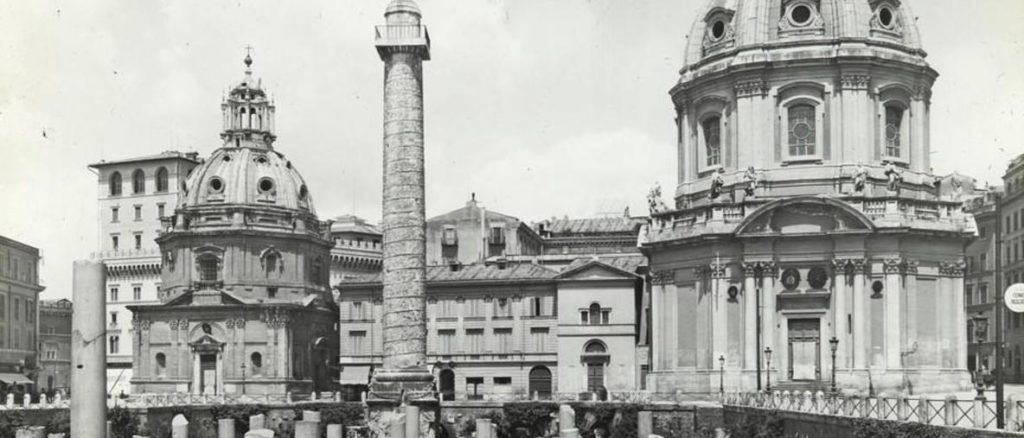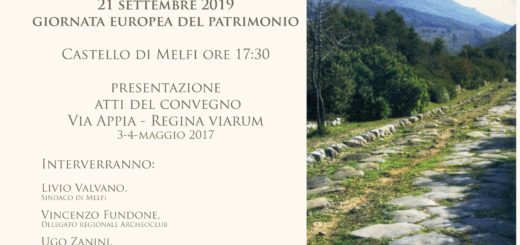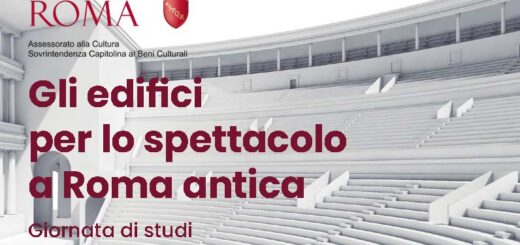NUOVA PROGRAMMAZIONE Space and Governance: Towards a New Topography of Roman Administration 2.-3.10.2020

https://www.helsinki.fi/en/news/language-culture/space-and-governance-towards-a-new-topography-of-roman-administration-3.-4.4.2020
Programme
Friday 2 October 2020
09:30-10:30 Keynote
Paolo Liverani (Università degli Studi di Firenze): The administration of the imperial property under Constantine and the Liber Pontificalis
10:45-12:45 Session 1: Magistrates & administration
Timothy Smith (University of Oxford): The Topography of the Aedileship in the Fourth and Third Centuries BC
Ben White (University of Nottingham): Aediles, porticus, and the organisation of mid-Republican Rome: the case of the Porta Trigemina
Anna-Maria Wilskman (University of Helsinki): There and back again: The Mobility of Roman Magistrates
Anthony Álvarez Melero (University of Seville): Between private and public: women’s presence in procuratorial praetoria
14:45-16:15 Session 2: All roads lead to Rome. Infrastructure & transport
Germana Scalese (University of Perugia): Roman roads: New perspectives on mileage counting and governance system. The Via Regio-Capuam’s case study
Riccardo Montalbano: Managing the urban street network of ancient Rome from Early Republic to Late Antique
Samuli Simelius (University of Helsinki): Moving magistrates in the Roman city space
Coffee break
16:45-18:15 Session 3: Archives & administration
Bradley Jordan (Universität zu Köln): Civic archives and Roman rule: Spatial aspects of Roman hegemony in Asia Minor from Republic to Empire
Antonio Lopez Garcia (University of Helsinki): How was the headquarters of Praefectura Urbis during the empire? A review of written sources and archaeology
Kaius Tuori (University of Helsinki): Roman administrative space: Questioning established models and preconceptions
Saturday 3 October 2020
09:30-10:30 Keynote
Elena Isayev (University of Exeter): Who needs places of publicness in Ancient Italy?
10:45-12:15 Session 4: Monuments & games
Jessica Bartz (Humboldt-Universität zu Berlin): Temporary vs. permanent. The organisation of public games
Joanna Kenty (Temple University in Rome): How to Propose a Monument in the Forum
Marlee Miller (New York University): School Masters: Imperial Administration of the Ludus Gladiatorius
14:15-15:45 Session 5: State & individual
Caroline Duret (University of Geneva): Legal regime of farming lands (agri vectigales) transfered by the Roman State to the colonists between I BC and II AD among Roman lawyers: custody, possession or ownership transfer?
Federico Russo (University of Milan): Domicilium and ius suffragii: A controversial juridical relationship
Lina Girdvainyte (Université Bordeaux Montaigne): An imperial estate in Augustan Thessaly: The emergence of imperial financial administration in the public province of Achaia
Coffee break
16:15-17:15 Session 6: Imperial structures
Juan Manuel Cortés Copete (Pablo de Olavide University): New Buildings for an oecumenical government: the Hadrianic Stoas
Andrei Y. Markelov (Moscow City Pedagogical University): The Curia Iulia and Augustan Ideology
17:30-18:30 Keynote
Pier Luigi Tucci: The administration of Rome’s topography
Call for papers
The purpose of the conference is to explore the transformation of public space and administrative activities in Republican and Imperial Rome through an interdisciplinary exploration of the topography of power. The emergence of the Roman Republic produced a reorganization of the administrative structures, leading to the emergence of various entities and institutions responsible for organization and governance of Rome, its civic life and public spaces. In different ways, this spatial model was exported to the colonies with the expansion of the Republic. Throughout the Roman world, building projects created spaces, the topography of the city, for different civic purposes: for the meetings of assemblies, senate meetings, the administration of justice, the public treasury, and the management of the city through different magistracies, offices and even archives. These administrative spaces –open and closed– characterized the Roman life throughout the Republic and High Empire, until the profound administrative and judicial transformations of the Dominate. This conference aims to study the public and private spaces related to administration through the urban development, the existing interrelation between the different administrative bodies, the analysis of the architecture of the spaces already discovered and the study of the written sources. We will try to find an answer to the dilemmas such as where did the administration work? Were there offices and where were they located? Were there social class differences between the different levels of administration?
Themes:
• Urban development and dynamics related to the expansion of the administration
• New discoveries on the institutions and spaces of Roman administration
• Architecture of spaces for public meetings and trials: Assemblies, Senate, courtrooms, basilicas
• Private spaces in the administration: Residences of magistrates and the elite
• Magistracies, offices and archives
• Epigraphy related to the Roman administration
• Development of institutions between early Republic and Late Antiquity
• New methodologies in Roman topography
• Gender, intersectionality and public space
Keynote speakers: Paolo Liverani (Università degli Studi di Firenze), Elena Isayev (University of Exeter) and Pier Luigi Tucci.
The conference is organized by the ERC-funded project Law, Governance and Space: Questioning the Foundations of the Republican Tradition (SpaceLaw), based at the University of Helsinki. There is no conference fee. The organizers are unfortunately unable to aid in either travel or accommodation arrangements or the cost of travel or accommodation.
Abstracts should be 300 words maximum, for 20-minute papers to be delivered in English. Abstracts should be sent to lawgovernanceandspace@gmail.com. The deadline for abstracts is 1 December 2019.
Questions may be sent to Antonio Lopez Garcia (antonio.lopezgarcia@helsinki.fi).




Commenti recenti